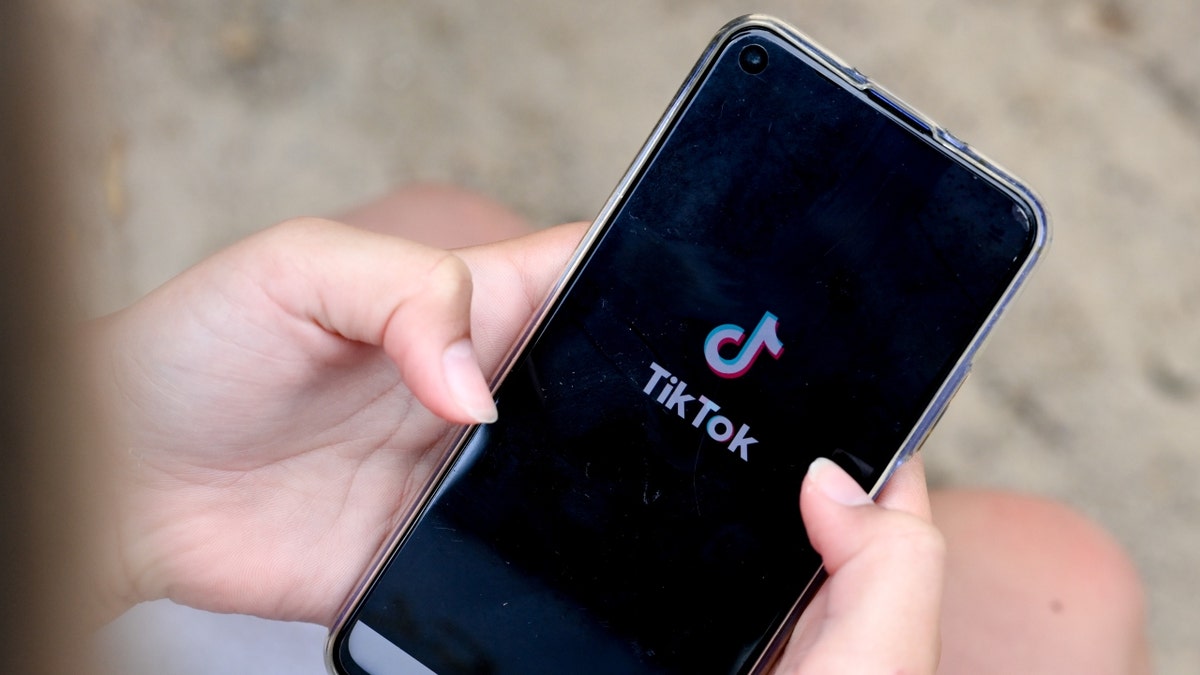Sen Tillis threatened over potential TikTok ban
Fox News congressional correspondent Aishah Hasnie has the latest on the chilling message on 'Special Report.'
Would you willingly let your child wander off with a stranger promising ice cream, a puppy or something else enticing? Of course not. As parents, we not only recognize and avoid such dangers, we teach our children to discern such risks as well. However, as a mother of three, I’ve noticed the landscape of threats is constantly evolving, growing more insidious and challenging by the day, and that creates risk not only to our children's physical safety, but also to their mental well-being.
We're raising kids in a world increasingly different and more complex than the one we grew up in. The onslaught of external influences is relentless. Whether through institutions that sidestep parental authority and influence or the pervasive online culture shaping their minds, our kids are being pulled further from the safety and values of their families and caught in the crosshairs of social movements, ideologies and digital trends that threaten their well-being.
One of the biggest threats online is the most-popular social media app among children globally and in the U.S., TikTok. On the surface, TikTok is known as a source of new trends and the latest dance crazes. However, a peek behind the curtain reveals that the platform covertly exposes children to content promoting suicide, extreme diets and distorted body images within minutes of engagement.
IDENTITY THEFT SCAMMERS TARGET INNOCENT CHILDREN
Findings from a 2022 Center for Countering Digital Hate (CCDH) study have been described as "every parent's nightmare." CCDH found that accounts registered as 13-year-olds were exposed to suicide content within 2.6 minutes.

The Chinese app TikTok does more than just serve as a global trendsetter. It exposes children to dangerous content, including videos about suicide. (Jens Kalaene/picture alliance via Getty Images)
As a result, hashtags related to suicide have amassed over 8.8 billion views. Moreover, CCDH’s report found that TikTok recommended videos about body image and mental health every 39 seconds, including ads for medical procedures and weight-loss drinks, effectively bombarding teens with messages that skew their perception of self-worth and body image.
This type of content has real life consequences, especially on teens whose minds are dangerously impressionable. Take, for example, 14-year-old Andie Duke, who spiraled into an eating disorder credited to TikTok's endless loop of harmful videos. The more she watched, the more the videos popped up on her feed.
Teen Daisy Gonzalez, also caught in TikTok's extreme diet trap, shed nearly a hundred pounds in a year, which led to gallstones and the surgical removal of her gallbladder. Aliya Katz, 17, sought TikTok's community for recovery support, only to find herself trapped in a toxic competition of who's suffering more, with users "posting their lowest weight" or "number of hospital admissions." This has far surpassed harmless sharing — it's a clear cycle of encouragement toward self-destruction.
CLICK HERE FOR MORE FOX NEWS OPINION
TikTok has also been exposed for pushing gender and sexuality content to minors, with some users claiming the algorithm identified their bisexuality before they did. Meanwhile, transgender influencers are pressuring minors into exploring their gender identity, and secretly distributing prescription drugs like puberty blockers and hormones — all without parents’ knowledge.
Oli London, a former transgender influencer who has now detransitioned, is one of many who have spoken out about the app's role in pushing gender confusion, sharing his personal turmoil after engaging with its content.
To be clear, no policy intervention or number of parental controls will replace the hard work of parenting and setting clear boundaries in the digital age. But that doesn’t mean there aren’t unique challenges and dangers presented by TikTok, a Chinese Communist Party-controlled social media platform created to prey on the impressionable minds of our kids.
CLICK HERE TO GET THE FOX NEWS APP
Perhaps the scariest factor is how this app has managed to embed itself so deep in our culture. Forty-one percent of American children spend two hours on TikTok daily. That’s 120 minutes with their minds at the hands of an adversary. Fortunately, as new research surfaces and victims share their stories, more Americans are seeing TikTok for what it is and pushing back.
We must stand against those who undermine our parental rights, influence, and authority and threaten our children's well-being. Together, we must work to ensure that public policy protects our children, and never undermines the connection and vital role of those who love them most. We know there is no better advocate for a voiceless child than a parent or guardian. Now is the moment for all parents to step up, reclaim our influence, and safeguard our children's futures.










































